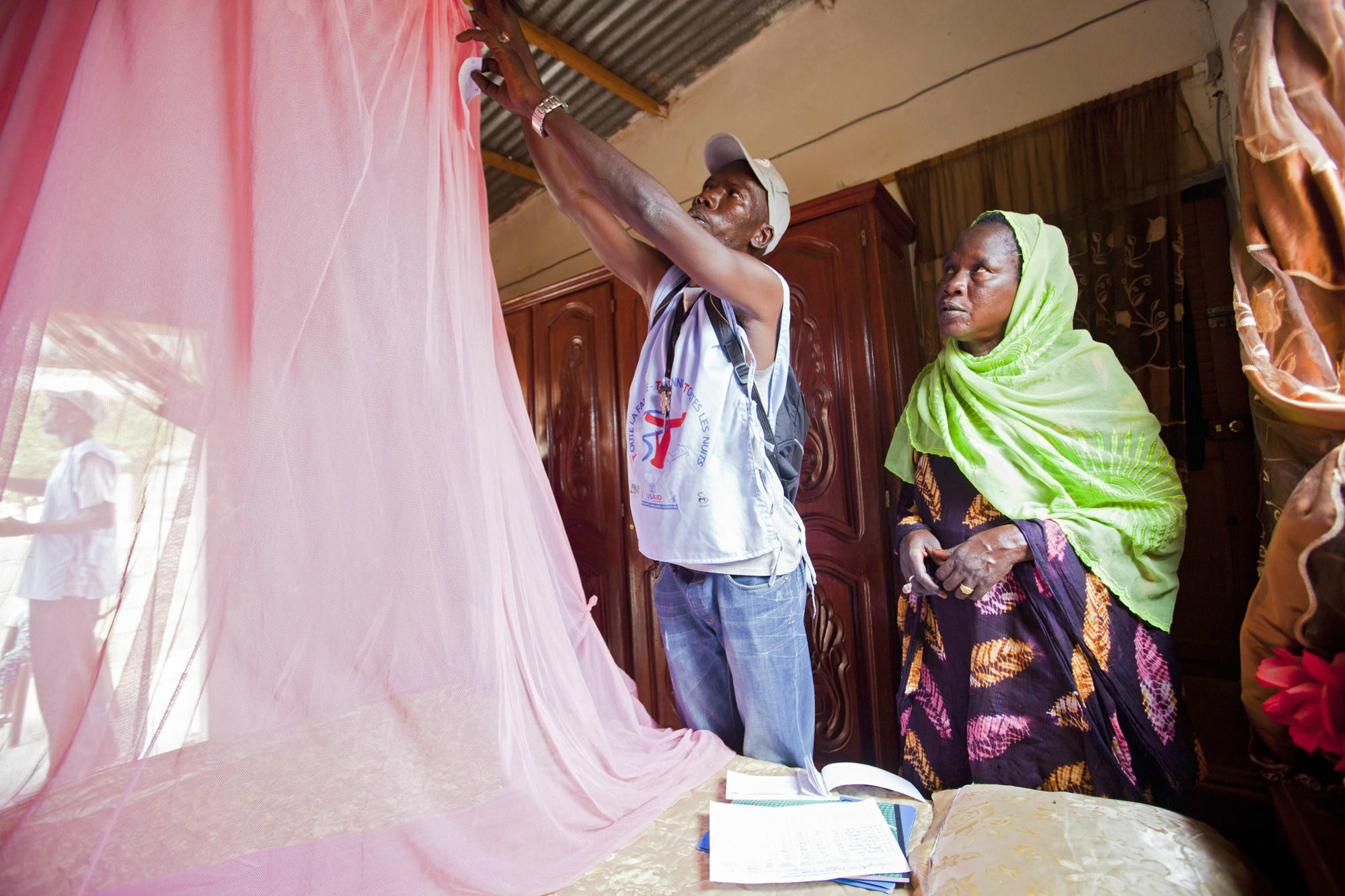A new editorial published by the Johns Hopkins Bloomberg School of Public Health Center for Communication Programs (JHU∙CCP) suggests that behavior change communication (BCC) plays an increasingly important role in malaria prevention and treatment initiatives. The article, Strategic roles for behavior change communication in a changing malaria landscape, was published recently in the Malaria Journal.
“BCC interventions – from basic interpersonal communication to complex multi-level mass media campaigns – have been shown to significantly impact family planning, HIV, sanitation and even nutrition health campaigns because they maximize results by targeting key messages,” explains Hannah Koenker, Senior Technical Advisor for Malaria at JHU∙CCP and lead author. “There is strong evidence to suggest that the same positive impact will be seen in malaria prevention and treatment behaviors. Our goal in this article was to highlight the benefits and value that BCC offers for malaria programming, especially as we move closer to elimination.”
The editorial underscores key ways that BCC improves the value of malaria programs. For example, it can encourage families to use nets correctly and regularly, mobilize communities to assist with IRS spray teams, create demand for diagnostic testing and improve treatment adherence.
However, the article argues that more high-quality data is needed to inform BCC interventions and ensure that strategies evolve as malaria transmission dynamics and risk perception change. Explains Koenker, “by supporting the use of BCC and research on its effectiveness, malaria prevention and possibly elimination is an attainable goal.”
Authors of “Strategic roles for behavior change communication in a changing malaria landscape” include Koenker, Joseph Keating, Martin Alilio, Angela Acosta, Matthew Lynch and Fatoumata Nafo-Traore. They represent JHU∙CCP, Tulane University School of Public Health and Tropical Medicine, USAID/PMI and Roll Back Malaria Partnership.
Funding for the publication was provided by the United States Agency for International Development President’s Malaria Initiative (USAID/PMI).
Read Strategic roles for behavior change communication in a changing malaria landscape.





